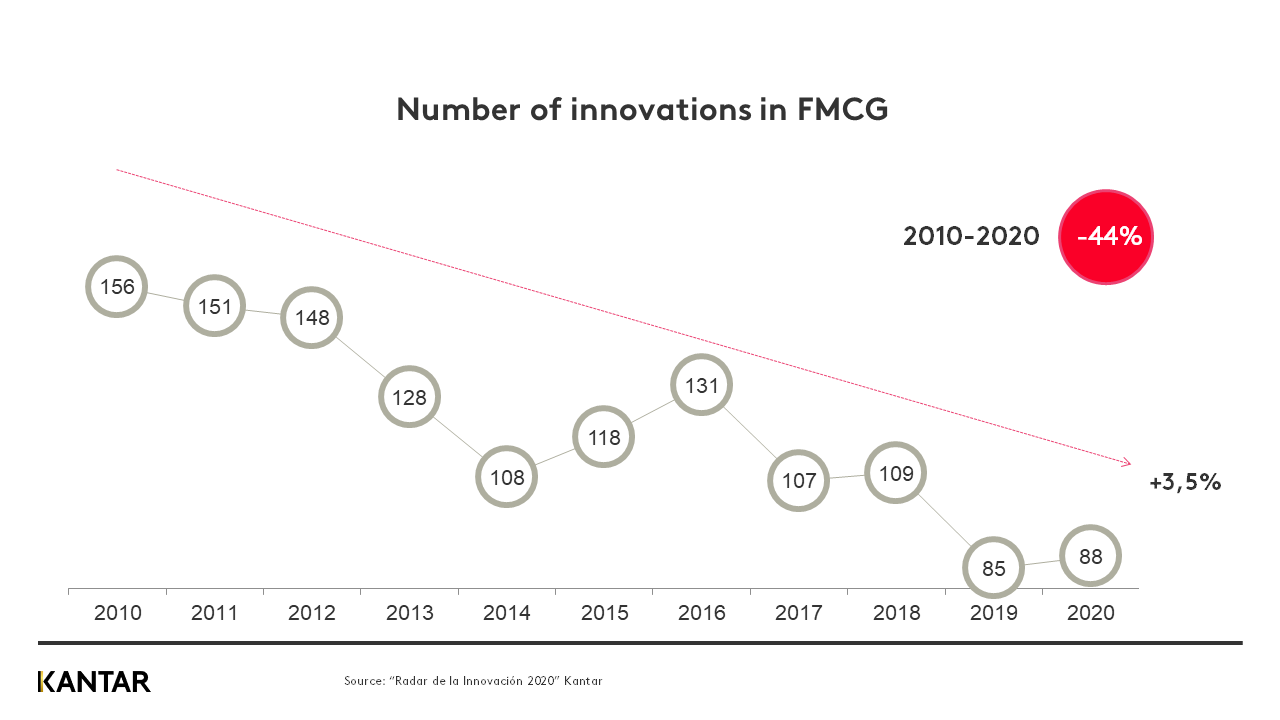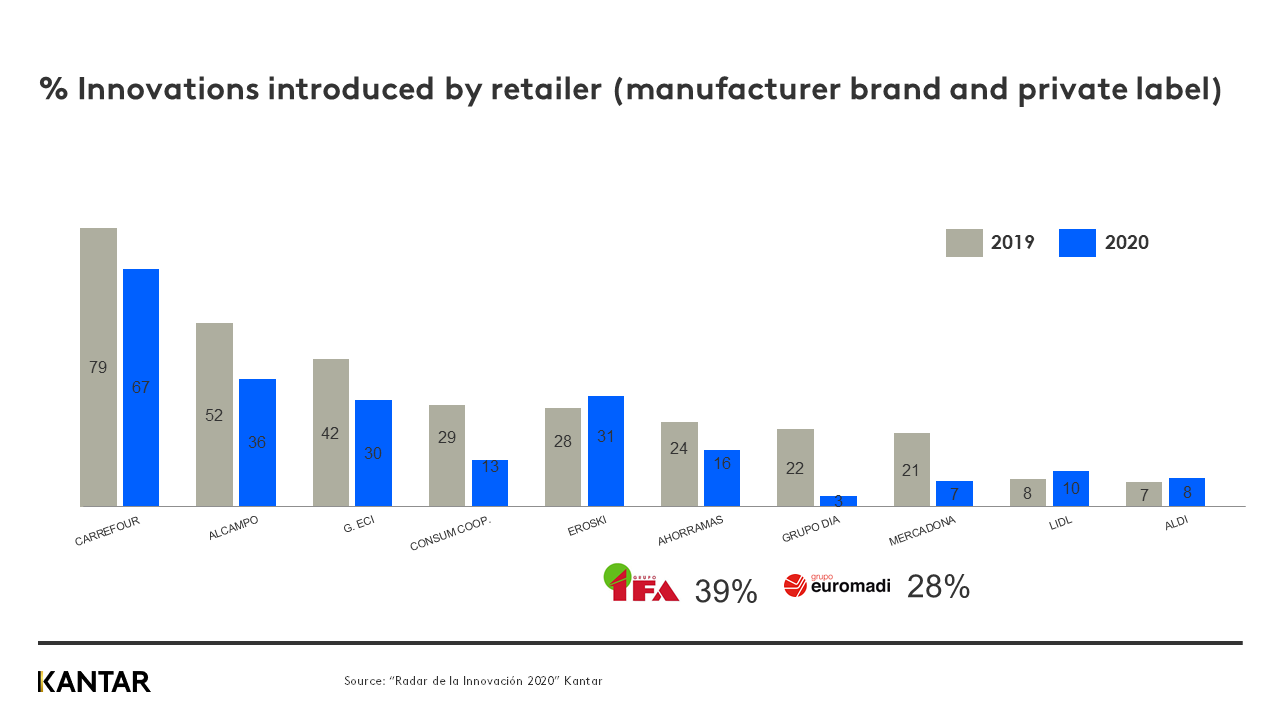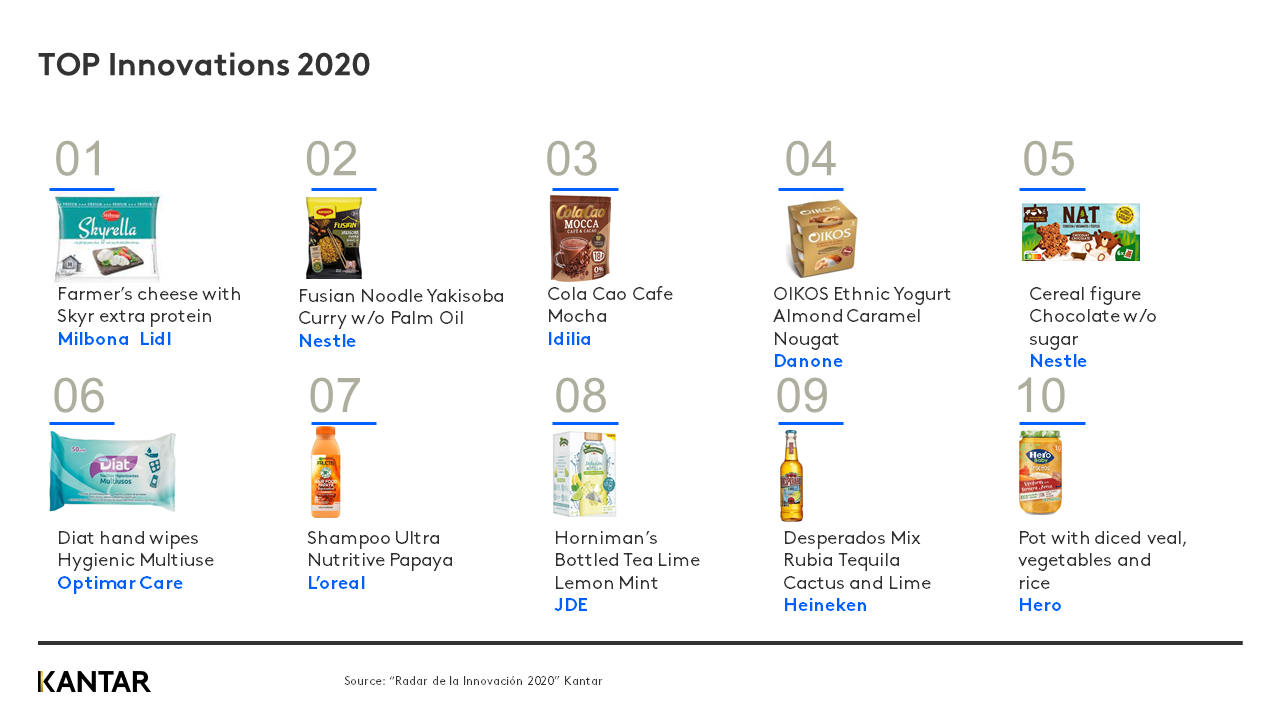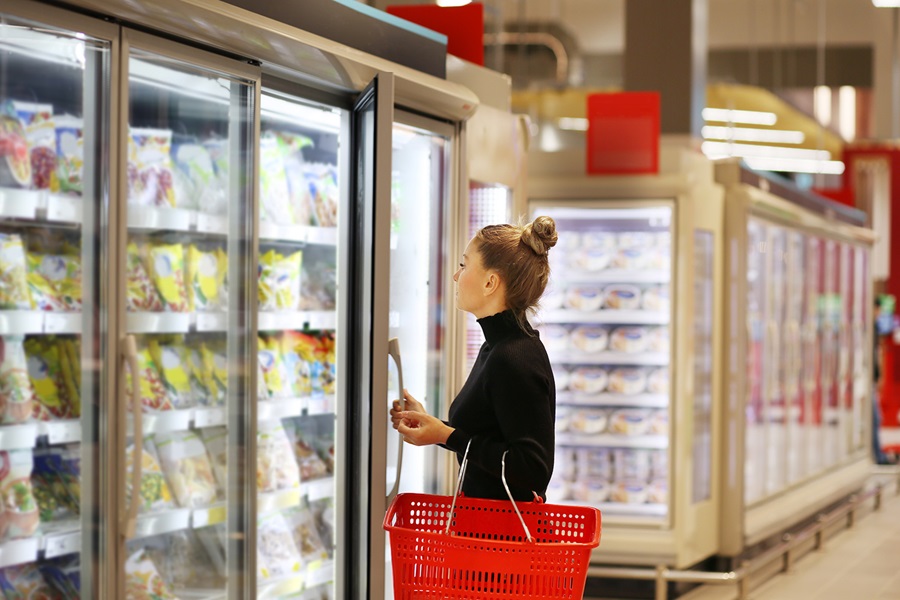There has been a 44% decline in the launch of innovative products in the FMCG sector in Spain since 2010. Despite the free fall, manufacturer brands continue to be the drivers of innovation. Manufacturers were responsible for 98% of the innovative products launched in 2020, which rose 3% from the previous year.

The availability of innovations remains low
Despite the efforts that manufacturer brands have put into innovation, their presence in some of the major retailers remains very low. Mercadona only stocks 7% of innovative products by manufacturer brands, Aldi stocks 8% and Lidl, 10%, while Dia ranks the lowest, stocking just 3% of innovative products. The retailers with the highest number of new products on their shelves were Carrefour (67%), Alcampo (36%), Grupo Eroski (31%) and El Corte Inglés (30%).
Percentage of innovations stocked by the main retailers in 2019 and 2020

In 2020, consumers who purchased innovations increased their consumption in these categories by 15%. Manufacturer brands played a key role in this rise. The number of innovations from manufacturer brands increased by 19%, whereas there was a 23% drop in innovations from private label. Manufacturer brands also attracted triple the number of new shoppers to the category through innovation as retailer brands did.
Although 2020 has been an unusual year due to COVID-19, 55% of innovations were successful, which is in line with the average of recent years.
Whether an innovation succeeds depends largely on its degree of newness, and to what extent it satisfies untapped needs. Also, innovations are frequently aimed at new users, new moments or new usage occasions.
Innovations benefit consumers. The consumer’s positive response is the greatest incentive for manufacturer brands to continue develop and launch innovative products. To do so, the entire chain – agricultural and livestock farmers, industry and retailers – must work together to maximise innovations’ market presence.
Manufacturer brands create 90% of the most successful innovations
Skyr extra-protein fresh cheese (Lidl) has been the most successful new product in the food category, followed by the Fusian Noodle Yakisoba Curry from Nestlé.
Standing out in the personal care and home care category are Optimar Care handwipes, while in beverages, the most successful innovative product was Horniman’s Bottled Tea (JDE).

COVID-19 impacts the results
The pandemic generated a never-before-seen spike in household demand from the FCMG market, which slowed the entry of new innovations. Faced with an enormous increase in demand, retailers prioritised getting products on shelves. The number of products on the shelves in high-growth categories rose significantly, such as multi-purpose cleaners, which saw 134 new ranges added, although these were not innovations. The result was that just 38% of innovations were launched in the first six months of 2020, while at the end of the lockdown, 84% more innovations were stocked per week, which were most likely to be products that were de-prioritised at the height of the pandemic.
“Indulgence” shifted to the home following the closure of the hospitality industry and the introduction of restrictions on daily life. In 2020, Spaniards enjoyed 2,445 million more in-home indulgence occasions than in the previous year – in fact, most innovations in 2020 were in the “indulgence” category (39%), with 28% in the “health” category and 19% in “convenience”.
Innovation remains at very low levels. In order for this key driver of consumption to boost the markets, manufacturers must create more and better innovations, and retailers must open up their shelves and stock them long enough for consumers to spot them. FMCG is still hampered by the effects of the pandemic so innovation is more important than ever. Keeping an eye on the latest trends and consumer demand is the route to successful product innovations. Reach out to our team to get more insights.
Notes to editors
For this study, the definition of innovation is as follows: it includes all of the EANs that have a new attribute value, except for brand and format (weight or litres). This applies to both new and existing EANs, if the code changes and if this change incorporates a new value. New combinations are not included. In other words, when an attribute value is related to a (non-new) brand for the first time. Therefore, this is the only study in Spain that offers a true reflection of innovation in the market.

